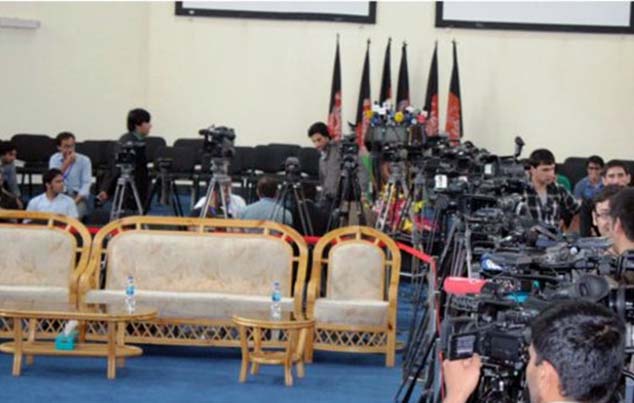With the Taliban and other militant groups increasingly targeting media members in Afghanistan, the environment for operation of media outlets has become more dangerous. Reporters find it increasingly difficult to work and report the facts on the developments in the country as they fear from being targeted by the militant groups that have heightened their offensive across the country. Since the fall of the Taliban in 2001, the recent years have been the deadliest for the Afghan journalists who have been targeted not only by the militant groups but also by local warlords and their militia groups who have considerable influence across the country. The increase in fatalities of journalists in Afghanistan is indicating that the freedom of expression has become further restricted in Afghanistan and the prospect for the free press remains even gloomier than the past.
The conditions for operation of mass media in Afghanistan has deteriorated while Afghanistan is obliged to honor freedom of press and has committed to improve the environment for mass media in the country. The intensification of Taliban insurgency and the government’s campaign to contain the militant groups is the main factor behind all other factors that have led to the worsening environment for operation of media channels. The heightened war efforts by both sides have led to both parties ignoring their commitments to protect the media members and reporters reporting on the developments in the country. The threats against reporters are not coming only from the Taliban and other militant groups but also from powerful local officials and pro-government militia groups in the provinces.
The dismal fact about providing protection for the media members is that the government’s commitment has also diminished in the face of the Taliban insurgency and other numerous challenges existing in the country. In recent years, many reporters and media members have been targeted by local government officials and pro-government warlords who control private militias in some provinces across the country. However, the government has failed to prevent deterioration of the situation and pursue the culprits and influentials behind the incidents happened to the reporters. According to NAI, the media advocacy group that support freedom of press in Afghanistan, both pro-government groups and the militants continue to threaten the media members as attacks against media members and reporters have been steadily on the rise.
Nonetheless, the fact remains that the biggest threat against freedom of expression and operation of mass media is coming from the militant groups. Employees of some major media channels are now considered as enemies and legitimate military target by the militant groups particularly the Taliban. A deadly bombing striking a vehicle of staffers of the Moby Media Group left many casualties from the employees of the well-known Tolo TV channel and its sister outlets operating under Moby group. This came as the biggest single incident taking casualties from the media sector in Afghanistan. The attack on staff members of the Moby media group came after the Taliban accused two private TV channels of bias in reporting from the conflict in Kunduz province last year.
Since the fall of the Taliban in 2001, the attack on staffers of Moby group was the largest in its scale against the media in Afghanistan. It was in fact a declaration of war against the free press, something the Taliban had avoided in the past fifteen years of the conflict. The attack changed to whole situation for operation of media channels and works of reporters reporting. The incident indicated Afghanistan was remaining one of the most dangerous countries for journalists and operation of free press. With the attack in Kabul, the already precarious environment for Afghan journalists became particularly unsafe as most of reporters and media employees do not feel safe anymore.
Designating media organizations as legitimate military targets is indicating a shift in Taliban approach to the freedom of expressions and the activities of the free press. Pursuing more aggressive militant campaigns on the ground, the militants aim to further boost the group’s propaganda machine along with its military offensive. However, the free and independent press in the country is viewed by the militants as the biggest hurdle against their war propagandas. Despite the Taliban targeting employees of government and foreign forces in past over a decade, the group had relatively better approach to reporters, keeping the promise to not harm the media members and reporters. However, the Taliban’s mindset is not changed in considering freedom of expression as a threat against the group’s ideology. The rise of militant attacks against media members suggest the Taliban have shifted approach and aim to also revenge the media outlets that do not trust on Taliban sources and refuse to include Taliban comments.
The deterioration of security for the media organizations is having a broader impact on freedom of expression in the country. The Afghan journalists and employees of media groups are beginning to impose self-censorship on their reporting from the scenes and reflecting the facts as they are. This is because every individual is concerned with his or her security. The Taliban must remain committed to safety of Afghan journalists. Protecting media members is a basic obligation of all parties in the conflicts, and all sides including the militant groups must protect journalists and members of the media.
Home » Opinion » The Deteriorating Environment for Free Press
The Deteriorating Environment for Free Press
| Abdul Ahad Bahrami

